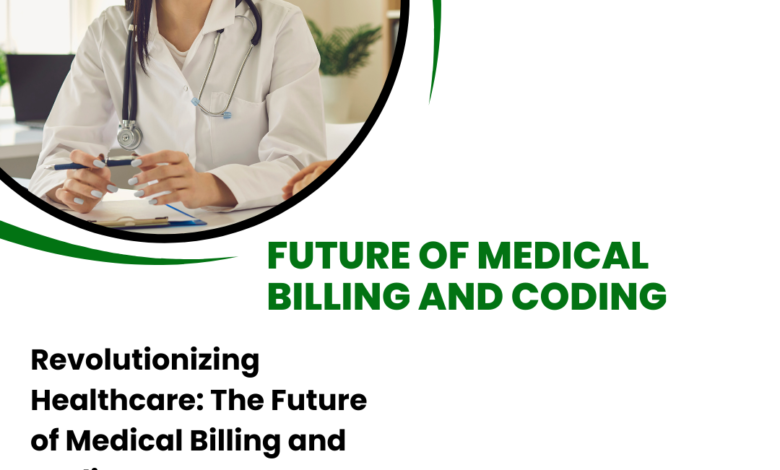Exploring the Future of Medical Billing and Coding

Trends and Innovations
In the ever-evolving landscape of healthcare, the future of medical billing and coding promises to be characterized by transformative trends and innovative technologies. As the healthcare industry continues to embrace digitization, automation and data-driven approaches, medical billing and coding are poised for significant advancements. This article examines the future of medical billing and coding, highlighting emerging trends, technological innovations, and their implications for healthcare professionals and organizations.
Integration of Automation and Artificial Intelligence (AI).
Advances in Automation: Automation is reshaping medical billing and coding processes, streamlining administrative tasks and reducing manual errors. AI-driven algorithms can automate coding, claim submission and payment processing, improving efficiency and accuracy in revenue cycle management.
AI integration: The integration of AI technologies, such as natural language processing (NLP) and machine learning, increases the accuracy and efficiency of coding. AI algorithms can analyze clinical documentation, identify relevant diagnoses and assign appropriate codes, reducing the burden on human coders and reducing coding inconsistencies.
Telehealth and remote patient monitoring
Expansion of Telehealth: Widespread adoption of telehealth services is changing medical billing and coding practices. As telehealth visits require specific coding guidelines and reimbursement policies, updates to coding systems are required to accommodate virtual care delivery.
Remote Patient Monitoring: Integrating remote patient monitoring technology into medical billing and coding workflows enables healthcare providers to capture data from wearable devices and other remote monitoring tools. Proper coding and documentation of remote monitoring services is essential to ensure accurate reimbursement and compliance with regulatory requirements.
Value-based care and alternative payment models
Shift to value-based care: The shift to value-based care models emphasizes patient satisfaction over quality outcomes and volume-based reimbursement. The future of medical coding systems must be optimized to capture performance metrics, track patient outcomes, and support a value-based reimbursement model.
Alternative Payment Models: Alternative payment models, such as bundled payments and Accountable Care Organizations (ACOs), require new approaches to medical billing and coding. These models promote cost-effective, coordinated care delivery, requiring coding systems that reflect bundled services and shared savings arrangements.
Blockchain Technology and Data Security
Blockchain in Healthcare: Blockchain technology offers potential solutions to data security and interoperability challenges in medical billing and coding. Blockchain-enabled platforms can securely store and share patient health information, ensuring data integrity, transparency and privacy.
Enhanced Data Security: With the increasing digitization of healthcare data, ensuring data security and compliance with privacy regulations is paramount. Medical billing and coding systems must include robust cyber security measures to protect sensitive patient information from data breaches and cyber attacks.
Enhanced interoperability and standardization
Interoperability Challenges: Interoperability gaps between different healthcare systems pose challenges to medical billing and coding workflows. Standardizing coding systems and promoting data exchange standards facilitate seamless interoperability and improve the accuracy and efficiency of billing and coding processes.
Integration of Electronic Health Records (EHRs): Integration of medical billing and coding functionality into electronic health record (EHR) systems streamlines documentation and coding workflows, reduces duplication of effort, and improves data accuracy. Seamless integration between EHR and billing systems increases coding efficiency and supports comprehensive revenue cycle management.
Conclusion: Adopting Innovations in Medical Billing and Coding
Ultimately, the future of medical billing and coding is characterized by innovation, automation, and adoption of advanced technology. From AI-driven coding algorithms to blockchain-enabled data security solutions, healthcare organizations are embracing transformative trends to optimize revenue cycle management and improve patient care. By staying abreast of emerging technologies and regulatory changes, healthcare professionals can confidently navigate the evolving landscape of medical billing and coding, ensuring accurate reimbursement, compliance and quality outcomes.
Read More: Exploring the Eventual fate of Medical services


